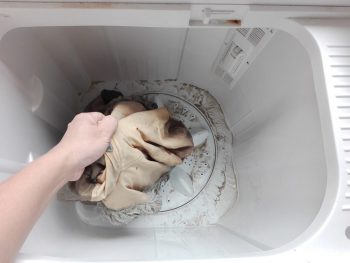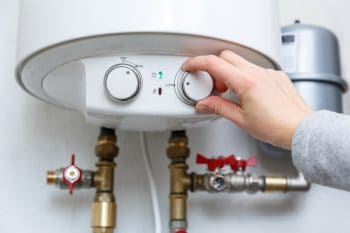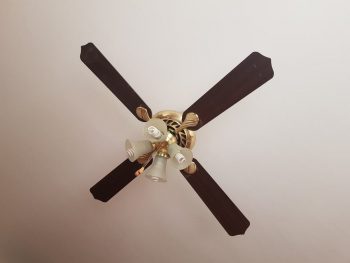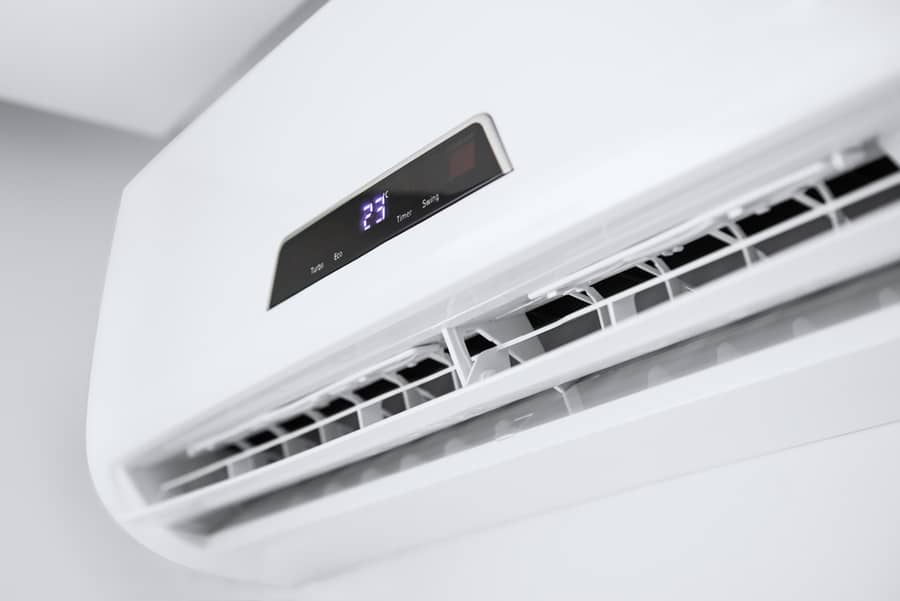
All air conditioners use a fluid called a refrigerant to absorb heat from the air in a house/room and discharge it to the environment providing cool air back to the house.
The refrigerants that have been used for many years are chlorofluorocarbons (CFCs), halogenated chlorofluorocarbons (HCFCs), and hydrofluorocarbons (HFCs). However, these refrigerants have a very high ozone depletion potential (ODP) and a ridiculously high global warming potential.
This necessitates more sustainable refrigerants such as propane gas. Propane’s operating pressure and temperature are suitable for use as a refrigerant in an AC.
It is a sustainable refrigerant because it is a non-toxic gas with zero ozone depletion and low global warming potential.
- A propane air conditioner is a central AC or mini-split that uses propane as a refrigerant.
- The high ozone-depleting and global warming potential of CFC, HCFC, and HFC refrigerants have necessitated using sustainable refrigerants such as propane.
- Propane air conditioners operate the same way as the other types of ACs, only that they use propane refrigerant.
- The main advantages of using propane as an AC refrigerant are that it ensures high energy efficiency due to its excellent thermodynamic properties, negligible global warming, and ozone-depleting potential is cheaper than synthetic refrigerants.
- It is vital to take caution when manufacturing, installing or serving a propane AC due to propane’s high flammability.
In this article, we’ll discuss what propane air conditioners are, why they are becoming increasingly popular, and how they operate.
We’ll also tell you why you should consider investing in a propane AC for your home or office. Let’s get started.
What Are Propane Air Conditioners?
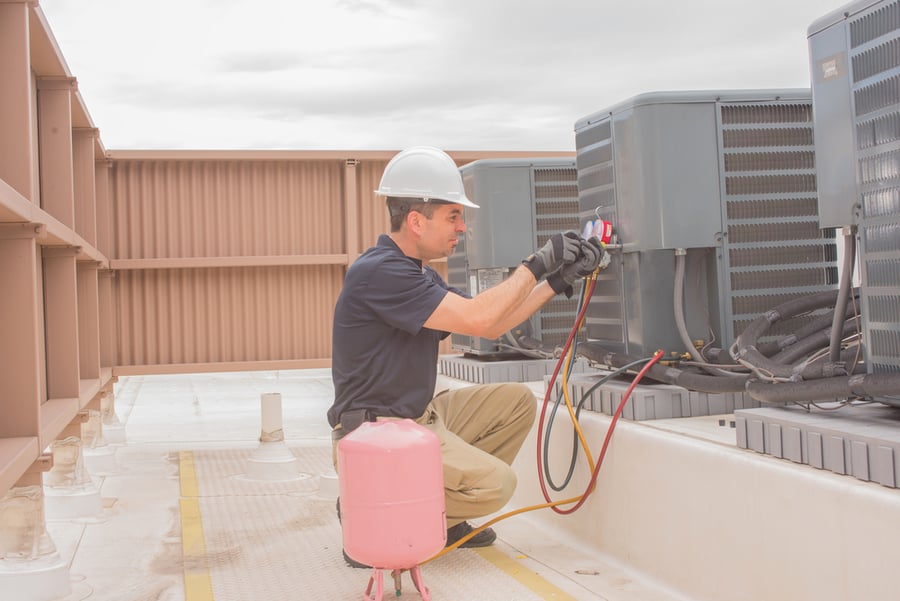
A propane air conditioner is a central AC or mini-split that uses propane as a refrigerant.
Most air conditioners contain chlorofluorocarbons (CFCs) or halogenated chlorofluorocarbons (HCFCs) as refrigerants. However, such refrigerants have high ozone depletion and global warming potential and are therefore being phased out.
According to Energy.gov, CFC production in the United States stopped in 1995, and HCFC, HCFC-22 (also called R-22), began to be phased out in 2010 and stopped entirely in 2020.
However, even though they are not actively being produced, many buildings still have them because their ACs have not reached their lifespan or some scrupulous manufacturers reuse them from old systems.
On the other hand, the hydrofluorocarbons (HFCs) that replaced HCFCs and CFCs have low ozone-depleting potential but have significant global warming potential, which could worsen the current effects of global warming.
This observation led to the signing of the Kigali Amendment on the Montreal Protocol in 2016, where signatories pledged to restrict the production and use of HFCs from 2019.
The Kigali amendment supports using safer refrigerant options such as ammonia and propane. However, propane remains the safest refrigerant since ammonia can potentially lead to water and soil quality changes.
It has zero ozone depletion, low global warming potential, and excellent thermodynamic properties leading to high energy efficiency.
Propane’s high energy efficiency means that manufacturers of propane air conditioners will abide by the new energy conservation standards for residential central air conditioners. Additionally, by using propane air conditioners, experts predict that we can potentially avoid a 0.06 to 0.12 °C increase in global temperature by the end of the century.
Such factors are what have led to the increase in the manufacture of propane air conditioners. While propane air conditioners are available in a few countries worldwide, you can expect them to dominate the market in a few years.
How Do Propane ACs Operate?
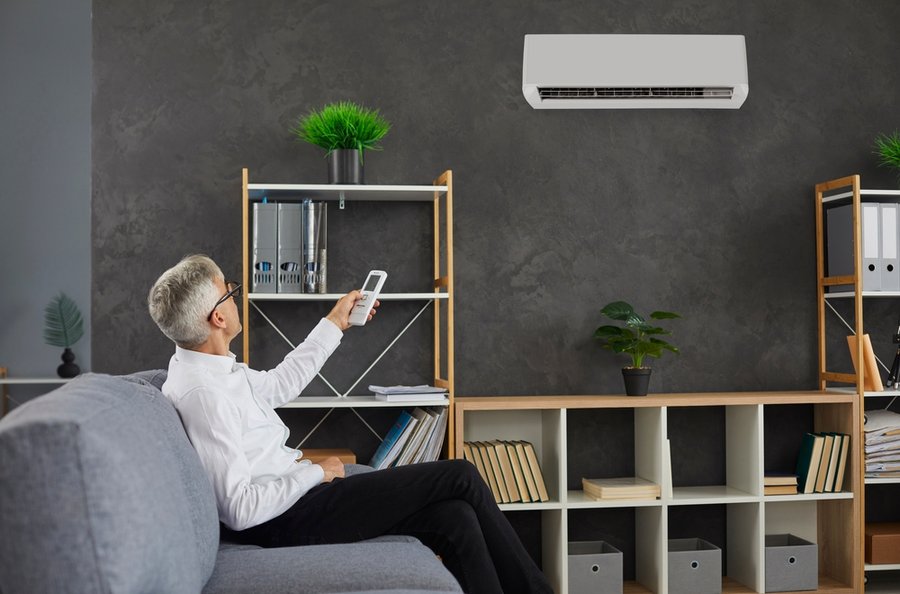
Propane air conditioners operate just like other air conditioners. Let’s look at how it works.
- When you set the temperatures you want in the thermostat, it sends the signal to the rest of the system, turning on the blower motor, compressor, and condenser fan.
- The blower motor sucks the warm air from the room through the return ducts, and the warm air passes through a filter and then over the evaporator coil.
- The evaporator coil contains cold propane refrigerant, which absorbs the heat from the air making it cooler while the propane refrigerant becomes warmer.
- The cool air is then blown back into the house through the return valve by the blower motor’s fan.
- Once the propane refrigerant absorbs warmth from the air, it flows to the condenser unit.
- In the condenser unit, the liquid propane refrigerant enters the compressor, where it is pressurized, turns into a high-temperature and high-pressure gas, and flows through the condenser coil.
- The refrigerant loses heat as the condenser fan blows cold air from the environment over the condenser coil. The heat is then expelled into the outdoor environment.
- Once the propane refrigerant loses all the warmth, it becomes liquid. Then, it flows back to the evaporator coil to allow the process to repeat itself until you manually turn it off or the temperature you set on the thermostat is achieved.
- At this point, the AC turns off the compressor and fan, depending on your AC operating mode. The AC will come back to life if the temperatures start rising again.
Reasons To Invest in a Propane AC
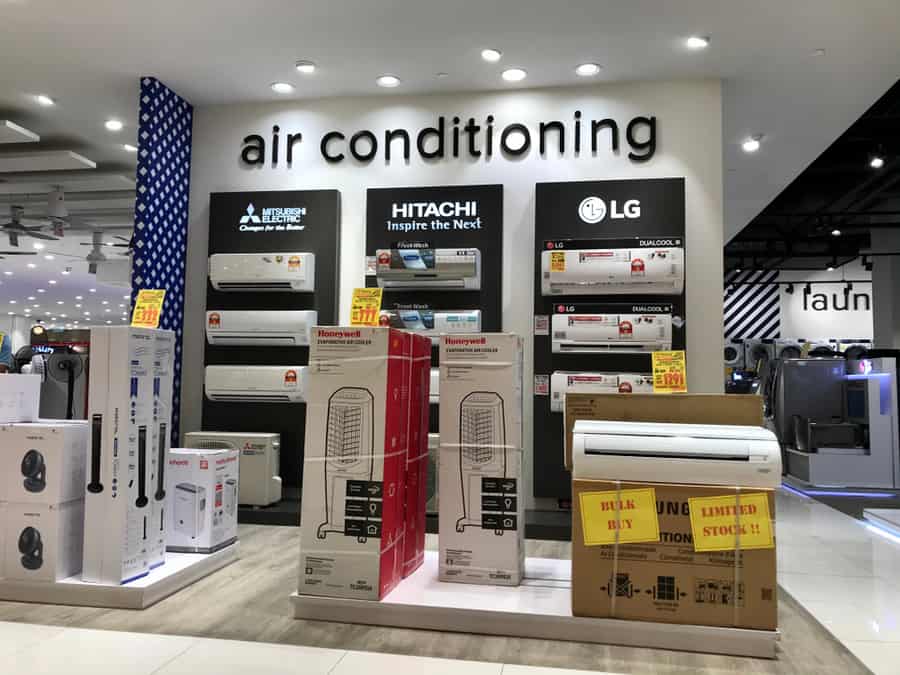
Here are some reasons why it would be best for you to invest in a propane air conditioner.
- Propane has negligible global warming potential.
- Propane (R290) has zero ozone depletion potential compared to HCFC(R22), which has an ODP of 0.055.
- It is cheaper than synthetic refrigerants.
- Propane ensures high energy efficiency due to its excellent thermodynamic properties. In addition, the latent heat of propane vaporization is almost double that of the most common HFC refrigerants.
- Propane has been rated as the most sustainable refrigerant and is not subject to future restrictions.
The Danger of Propane Refrigerants

There’s only one risk associated with using propane refrigerators. This risk is the high flammability of propane. Therefore, taking great care in manufacturing, servicing, and installing propane air conditioners is vital.
If a propane refrigerant leak occurs, it will displace air and drop to the lowest point since propane is denser than air. If the refrigerant collects in an enclosed area, there is a risk of explosion if the leaked gas comes into contact with an ignition source, such as a flame or spark.
Conclusion
As you can see, propane air conditioners are the next big thing in residential and commercial buildings. While they operate just like other air conditioners, they are more environmentally friendly.
However, it is essential to be cautious when manufacturing, installing, and servicing propane air conditioners due to their high flammability.
Frequently Asked Questions
Why Is Propane Preferred as an Air Conditioner Refrigerant?
Propane is the most preferred option for air conditioner refrigerant due to its excellent thermodynamic properties, ensuring high energy efficiency.
Also, it has little global warming and ozone-depleting potential and is cheaper than synthetic refrigerants.
Is It Safe To Use Propane as an AC Refrigerant, Considering It Is Highly Flammable?
Yes. It is safe to use propane as a refrigerant.
However, extreme caution has to be taken during the manufacture, installation, and servicing of propane ACs to prevent accidental fires.


